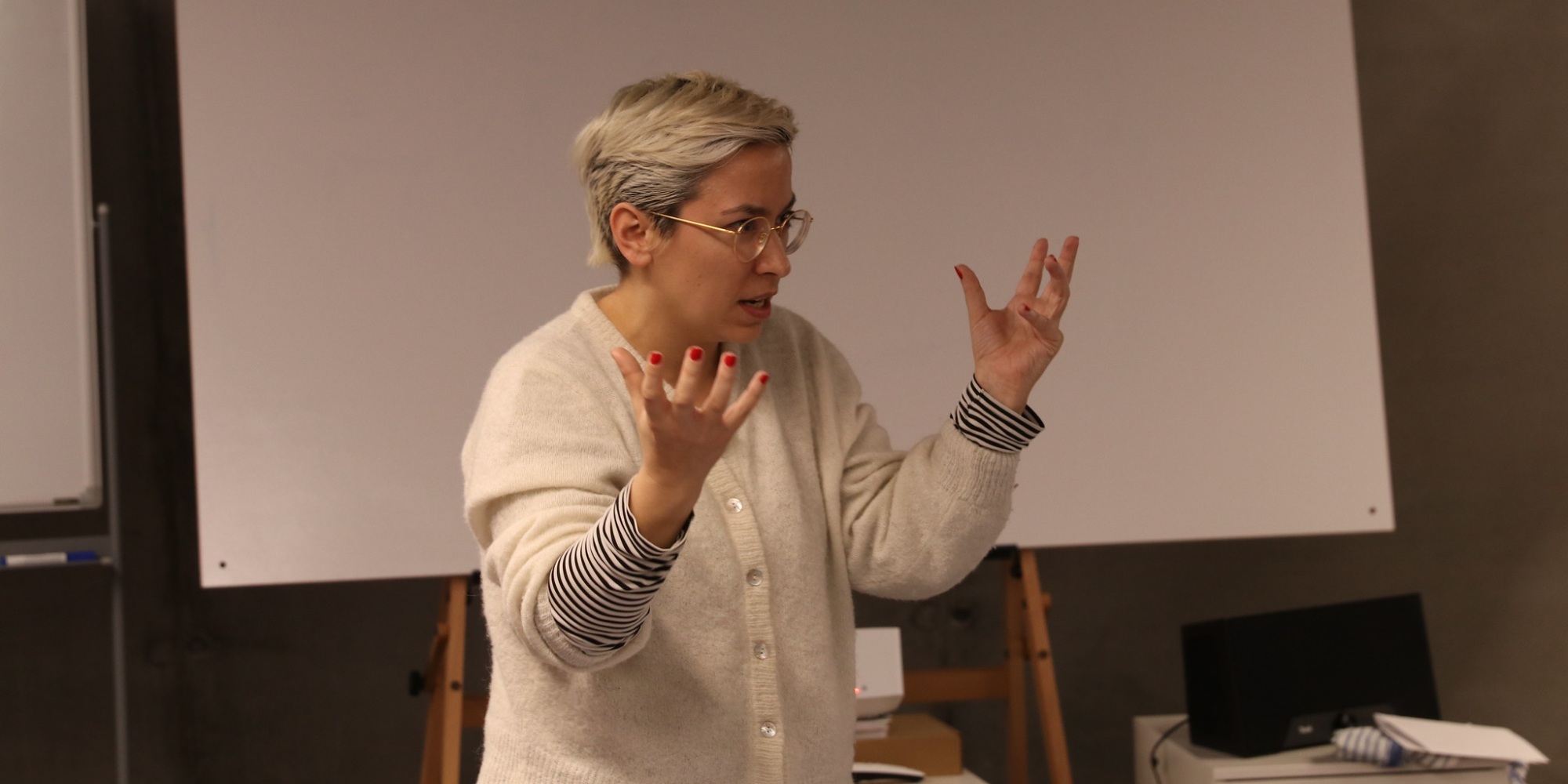In the sixth and last chapter of the FOUNDING LAB Fall Term, students delve into the intersection of technology, society, and policy through the lens of mobility
Guest post by Cyntha Wieringa.
Chapter 6 of the I:TU program, entitled “Tech-diplomacy – Movements and Mobilities among Nature, Tech, and People,” explores the dynamic interplay between technology, society, and policy, focusing on the concept of mobility. This chapter features insights from an impressive roster of fellows: Alex Putzer, a doctoral graduate whose dissertation examines the rights of nature within urban settings; Elisabeth Windisch, who serves as the co-head at the Research Centre of the International Transport Forum at the OECD in Paris; Julia Kloiber, a co-founder and director of the feminist technology organization Superr Lab; Kamya Ramachandran, the founder and director of the vibrant, international TechArt platform BeFantastic; and Lukas Fuchs, a political philosopher affiliated with the Eindhoven University of Technology. Together, they delve into the intersections of technology, society, and the environment, offering unique perspectives on how mobility shapes and is shaped by these domains.
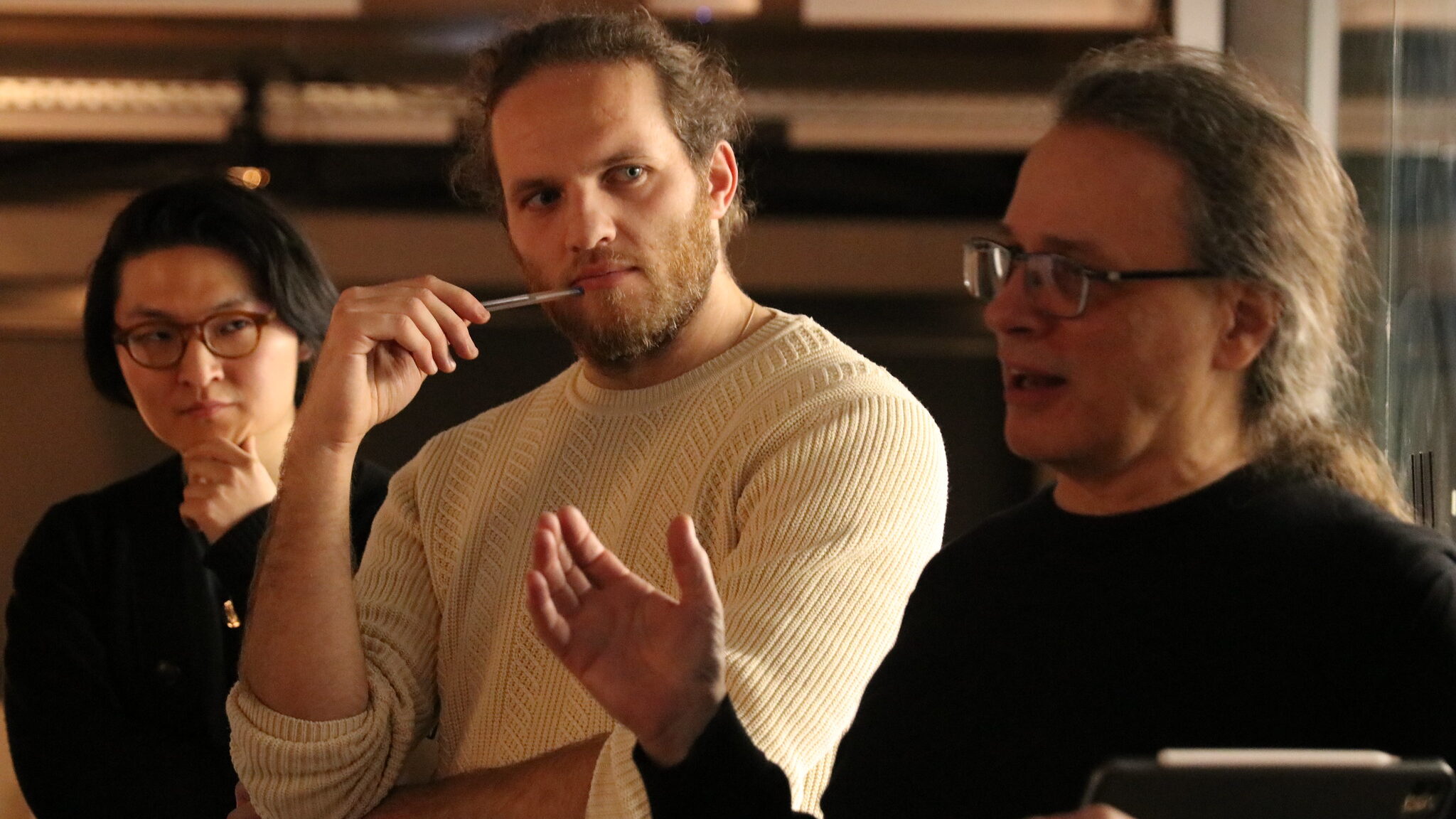
On the first day, students were tasked with bringing images depicting future mobility from sci-fi movies. The discussions that followed revealed predominant narratives – a majority of these sci-fi narratives were characterized by a focus on white, male-centric, colonial, and dystopian themes. In response, the students engaged in group work, employing a method known as Causal Layered Analysis. (CLA). CLA is a methodological framework developed by futurist and scholar Sohail Inayatullah. It is used for exploring and analyzing complex social issues and understanding the multiple layers of causation that contribute to them. The objective of applying CLA in this case was to deconstruct the prevailing dystopian narratives and explore avenues for more optimistic and diverse future scenarios. In parallel, the students were asked to create a collective glossary of terms that emerged from their collective discussions. This glossary was continuously reflected upon throughout every day of Chapter 6.
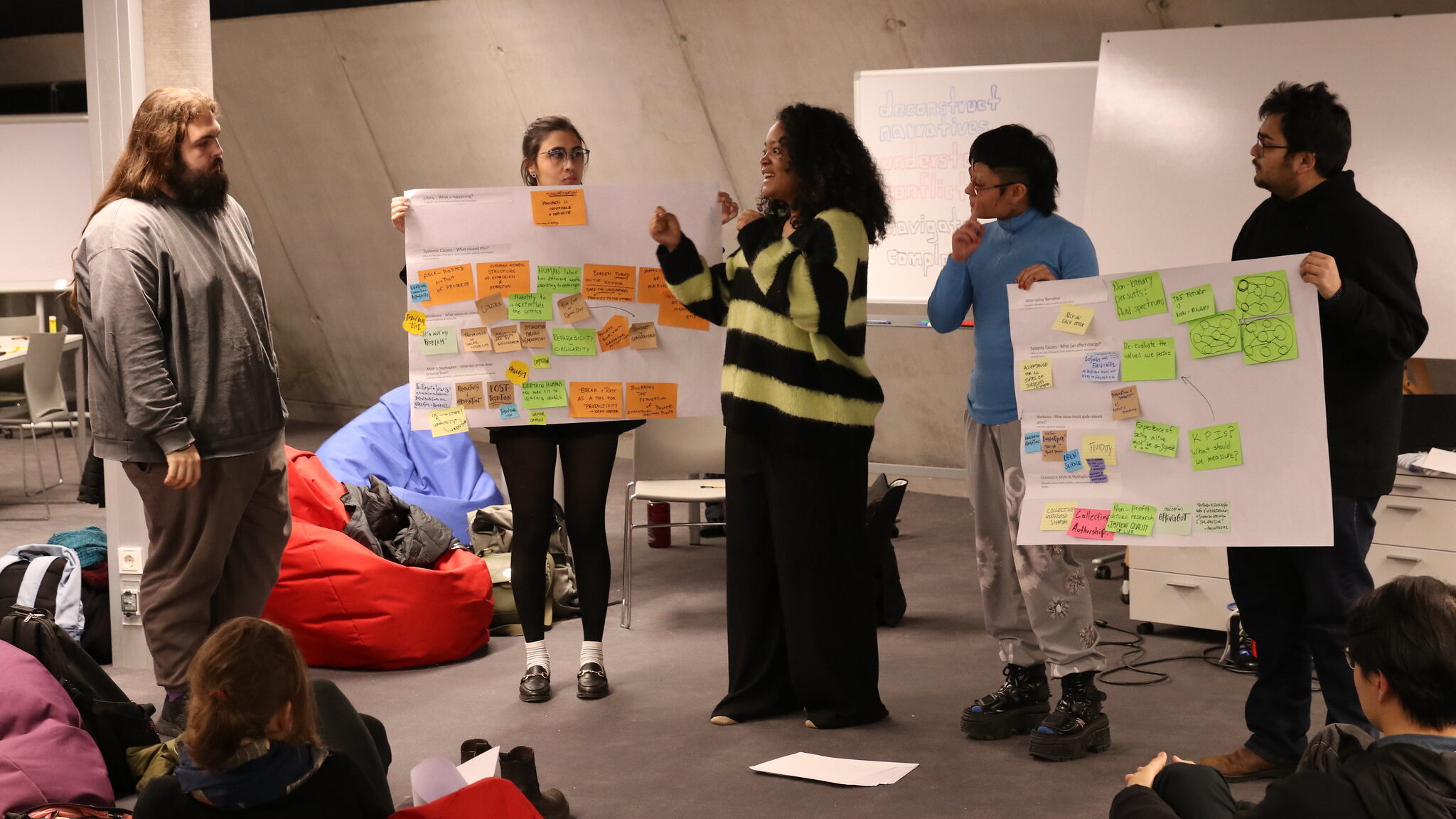
The second day of the program was hosted at the Ars Electronica Futurelab, as the main task of the day required the students to explore the city of Linz once again. The day focused on an exercise called ‘Counter Mapping’. Whereas stakeholder mapping focuses on understanding the stakeholders involved in a certain place or issue, counter mapping often takes a more critical and activist-oriented approach. It seeks to challenge dominant narratives of a space and involves the creation of alternative maps or representations that highlight marginalized perspectives, histories, or spatial arrangements that may be ignored or suppressed in mainstream mapping practices. The students were tasked to make a counter map of the city of Linz, and present it in whatever format they deemed suitable.
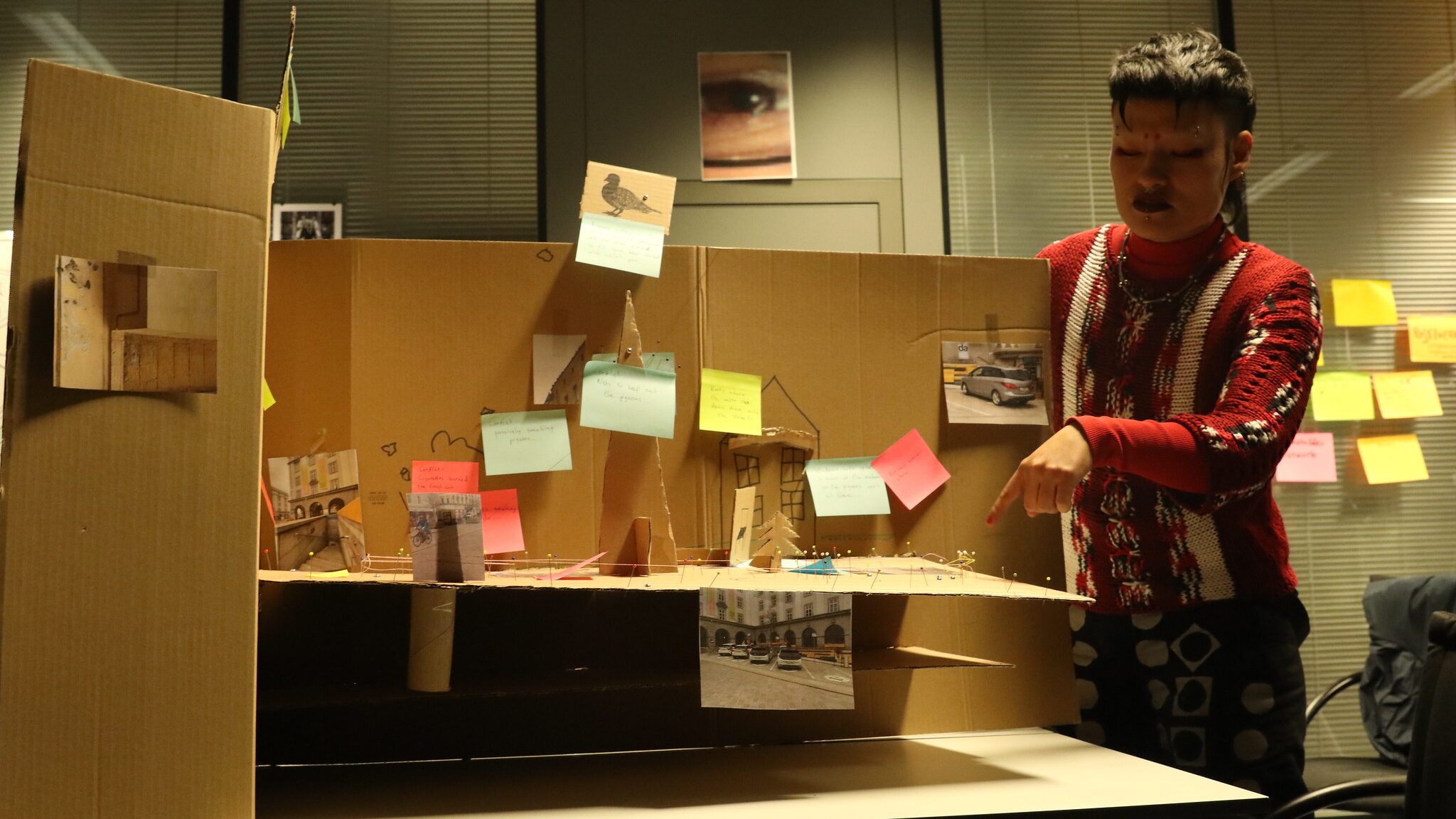
On the third day of Chapter 6 the students delved deeper into the intersection of theory and practice. Building upon the exercises and reflective discussion of the first two days, the focus shifted towards the practical application of acquired knowledge within the realm of policy making. Under the guidance of our fellows, students gained interesting insights into the intricate process of policy formulation and implementation. With vivid examples drawn from real-world scenarios, the content aimed to illuminate the multifaceted nature of decision-making processes of municipalities and countries. Through group discussions and collaborative exercises, participants chose their own case studies to engage with the complexities inherent in addressing local social issues.
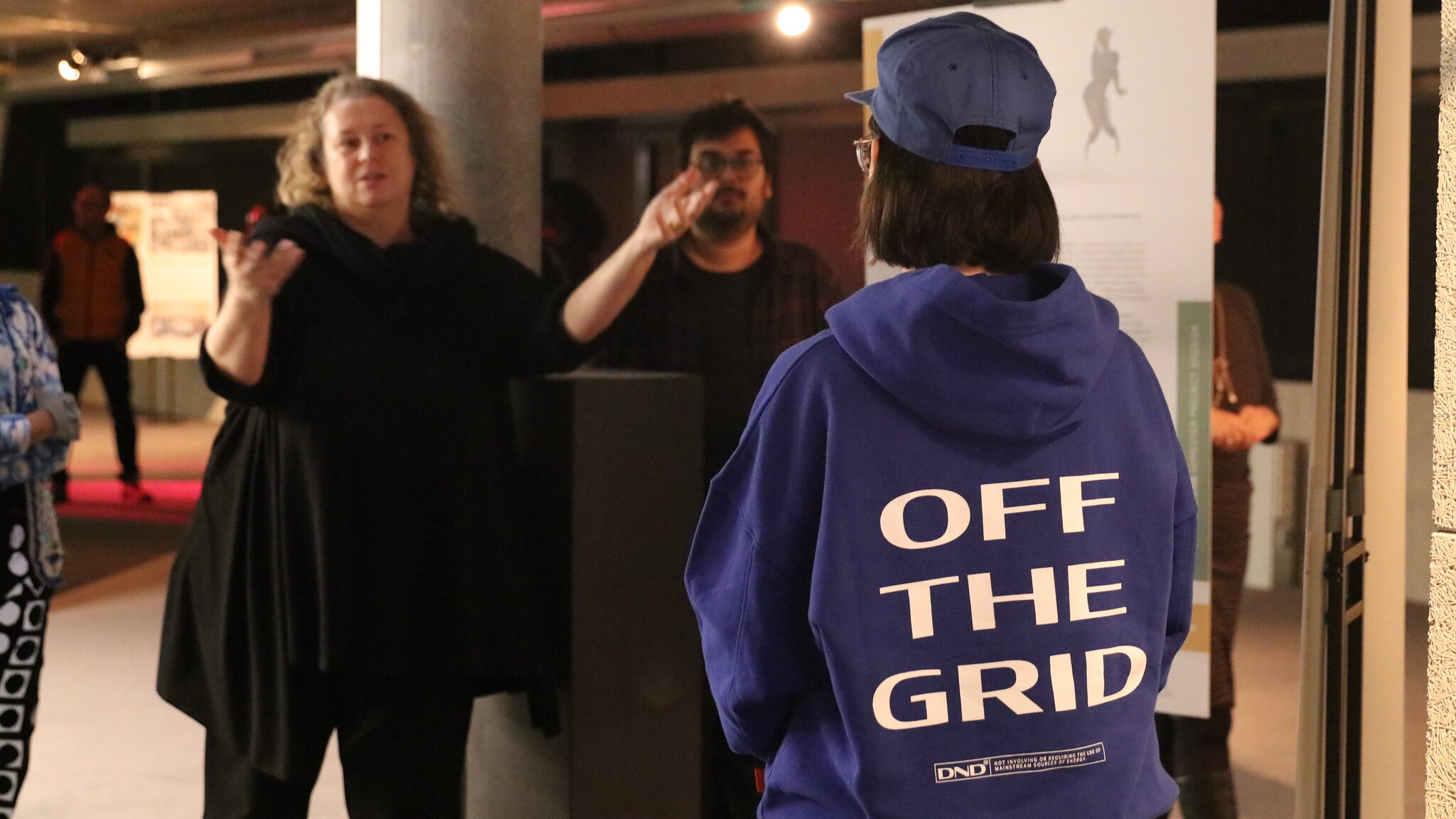
The last day of Chapter 6, simultaneously the last day of the Founding Lab Fall Semester, focused on the student projects and the following exhibition during the Founding Lab Event on the 25th of January. Each student created a poster about their project and used it to pitch their projects to members of the Founding Convent, Fellows, and their fellow students.
